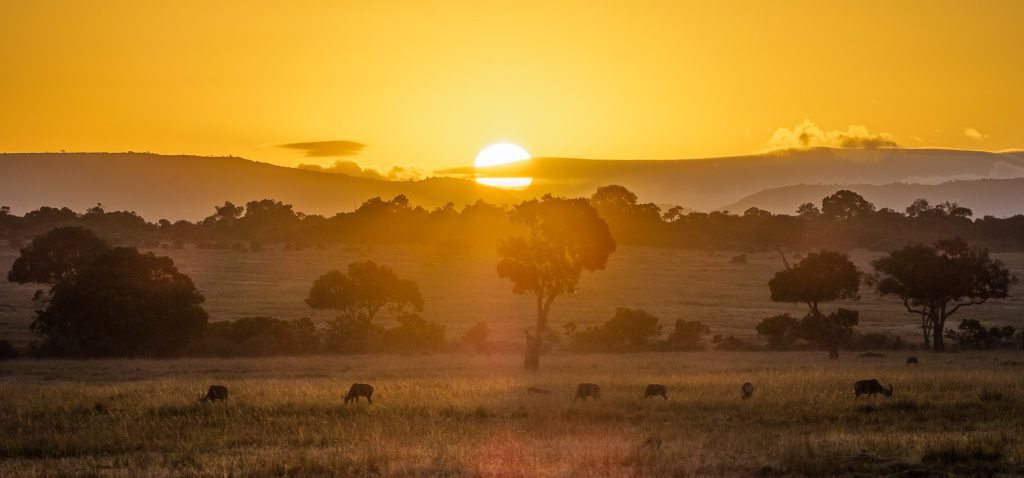Masai Mara safaris offer an immersive experience into the heart of one of Africa’s most iconic wildlife destinations. Here’s an overview of what you can expect on a Masai Mara safari:
Masai Mara Safari Experience
1. Wildlife Spectacle:
- Great Migration: Witness one of nature’s greatest spectacles as over a million wildebeests, zebras, and gazelles cross the Mara River from July to October, facing predators like crocodiles and lions.
- Big Five: Encounter the Big Five — lions, elephants, buffaloes, leopards, and rhinos — in their natural habitat. The Mara is renowned for its high density of predators and large herds of herbivores.
2. Game Drives:
- Embark on morning and afternoon game drives in open-sided safari vehicles with experienced guides. Game drives offer opportunities to spot a wide variety of wildlife, including nocturnal animals during night drives.
3. Hot Air Balloon Safaris:
- Experience a unique perspective of the Mara with a hot air balloon safari at sunrise. Float silently above the plains, witnessing wildlife from above and enjoying panoramic views of the landscape.
4. Cultural Encounters:
- Interact with the Maasai people, semi-nomadic pastoralists known for their vibrant culture and traditional way of life. Visit Maasai villages (manyatta) to learn about their customs, ceremonies, and daily routines.
5. Birdwatching:
- The Mara is home to over 450 bird species, making it a paradise for birdwatchers. Spot endemic and migratory birds, including raptors, water birds, and colorful songbirds.
6. Accommodation Options:
- Choose from a range of accommodations, including luxury lodges, tented camps, and mobile camps. Many lodges and camps offer luxurious amenities and stunning views of the Mara River or the savannah.
7. Conservation and Sustainability:
- The Maasai Mara ecosystem is protected under various conservation initiatives aimed at preserving its biodiversity and supporting local communities. Many lodges and camps actively contribute to conservation efforts.
8. Best Time to Visit:
- The best time to visit the Masai Mara depends on your interests:
- Great Migration: July to October for witnessing the river crossings.
- Wildlife Viewing: All year round, with peak seasons during the dry months (July to October and January to February).
9. Accessibility:
- The Masai Mara can be reached by flying from Nairobi to various airstrips within the reserve or by road, with options for guided transfers or self-drive safaris from Nairobi (about 5-6 hours).
A Masai Mara safari promises unforgettable wildlife encounters, cultural experiences with the Maasai people, and breathtaking landscapes, making it a bucket-list destination for safari enthusiasts and nature lovers alike.

